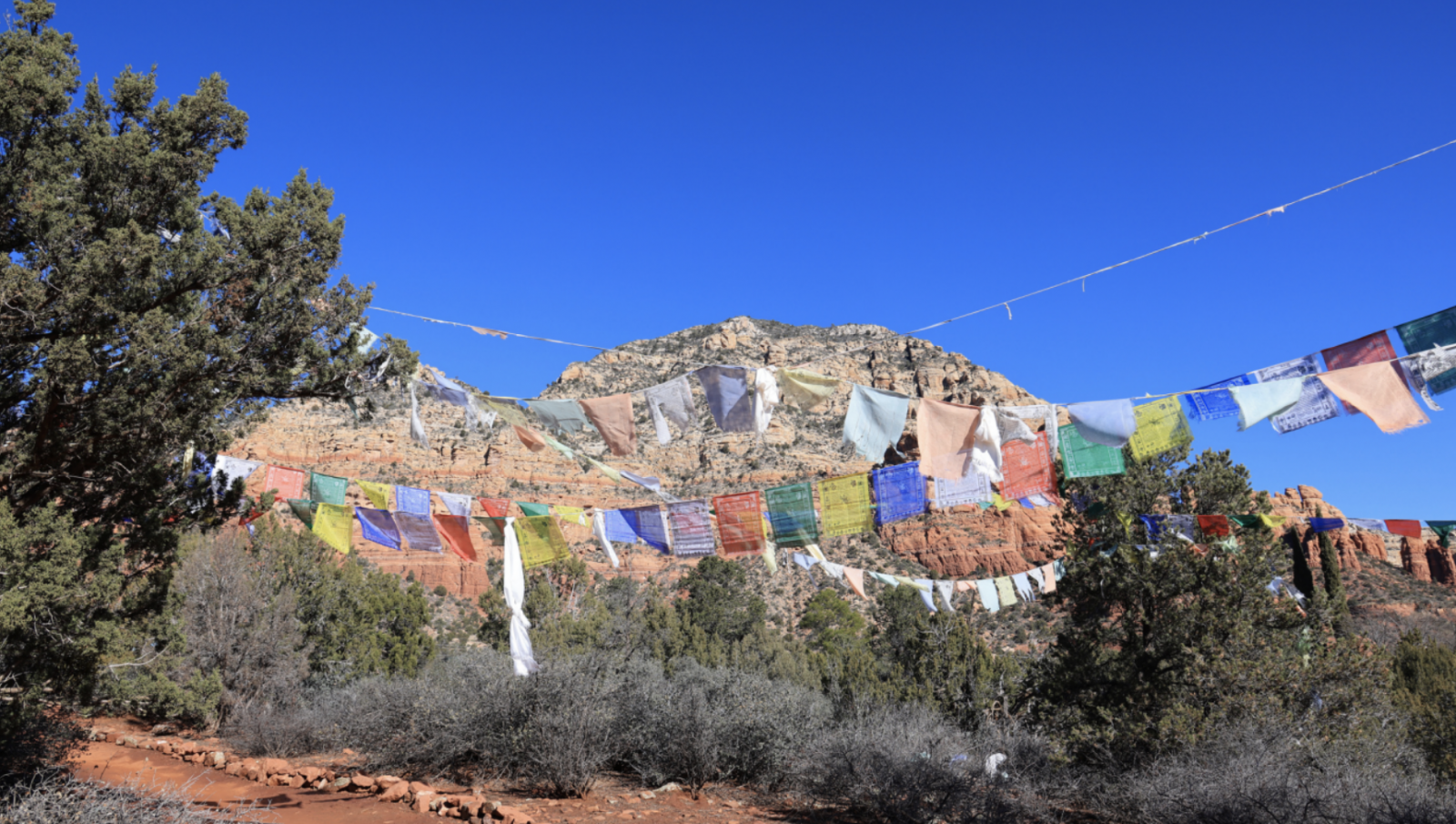
April 11, 2023
Online at 9pm EDT
“Landscape is first of all an effort of the imagination – a construed way of seeing the world which is distinctive to a people, their culture, and even their anticipated means of encountering the holy.”
-Belden Lane, Landscapes of the Sacred, 1988
“As the highest and most dramatic features of the natural landscape, mountains have an extraordinary power to evoke the sacred,” writes Dr. Edwin Bernbaum in his book Sacred Mountains of the World. “Mountains are regarded as embodiments of humanity’s highest ideals and aspirations…of all the features of the landscape, mountains most dramatically inspire a sense of awe.” From the gentle rolling hills of the Blue Ridge to the terrifyingly spectacular granite slabs of the Himalayas, mountains provoke a quintessential human urge – to both define, and be defined by, the land out of which we emerged. This reciprocal dynamic is generative, nuanced, and particular to place. And our engagement with this dynamic does create meaning. It is a tapestry of myth, culture, history, and tradition. It is a landscape. But our tendency to sacralize the link between inner and outer topographies does have a material significance. And with this premise, we must ask: What are the ecological implications of Sacred Mountains?
In partnership with the Philosophy, Cosmology, and Consciousness Forum, the Ecology, Spirituality, and Religion Program at the California Institute of Integral Studies is pleased to present a panel on Sacred Mountains featuring Dr. Edwin Bernbaum, Gregg Castro, and Dr. Elizabeth Allison.
Dr. Edwin Bernbaum has recently published a second edition of his book Sacred Mountains of the World and will speak about his expertise with cultures and traditions that regard mountains as sacred. As a climber himself, Dr. Bernbaum will address how the features of mountain landscapes also influence the human perception of meaning and purpose of within our endeavors, such as with mountaineering, conservation efforts, and the mitigation of climate change. www.peakparadigms.com
Gregg Castro [t'rowt'raahl Salinan/rumsien-ramaytush Ohlone], has worked to preserve his Ohlone and Salinan heritage for over three decades. Gregg is the Society for California Archaeology’s Native American Programs Committee Chairperson. Gregg is a Facilitator for the annual California Indian Conference, a 30+ year annual gathering about California Indigenous culture. He is a Founder/Advisor to the California Indian History Curriculum Coalition, based at CSU-Sacramento, promoting accurate school curriculum. He is Culture Director for the Association of Ramaytush Ohlone, advising within their San Francisco Peninsula homelands. Gregg is a writer-activist within the California Indigenous community. He will speak about the activism he's been doing in his community over the years protecting land and sacred sites related to his heritage.
Dr. Elizabeth Allison, chair of ESR, is an environmental social scientist whose research has explored the intersection of religious traditions with environmental policy and practice. Much of that research has been located in the mountains of Bhutan, where waste management practices, sacred sites, and cultural practices have all intertwined to respond to rapid change. Her talk will be focused on sacred forests as sites of ‘bio-cultural’ resistance. www.elizabethallisonphd.com
